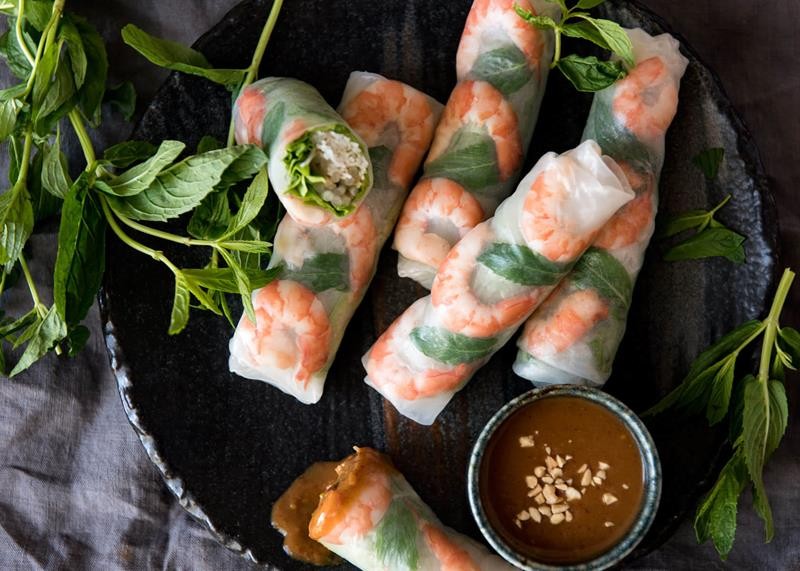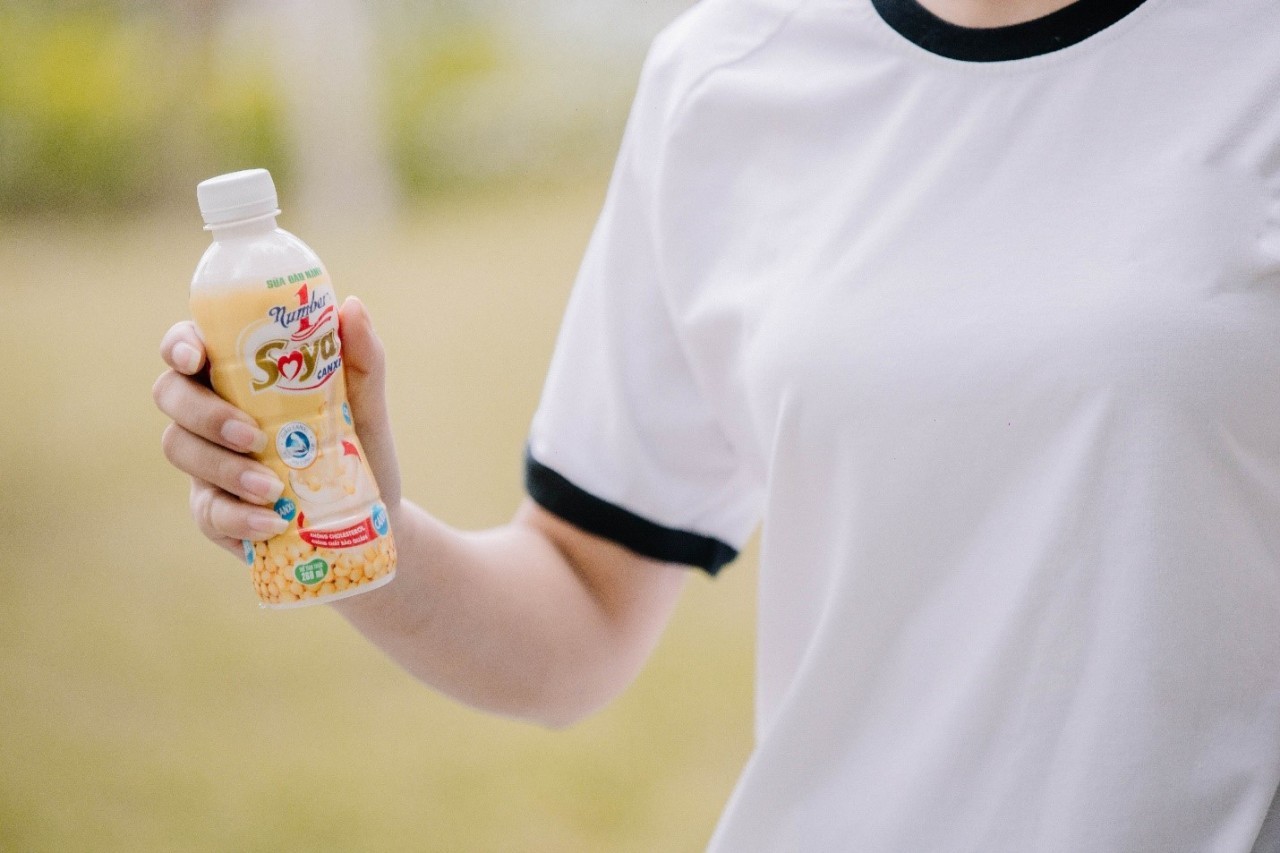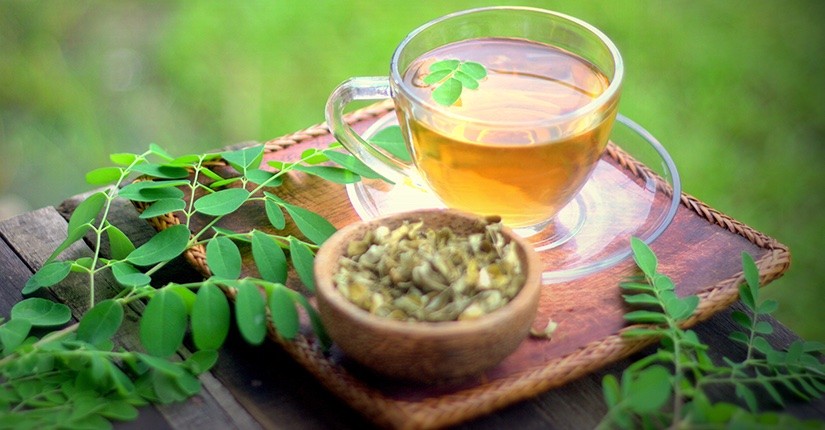How Drinks Make You Sleepy or Sleepless
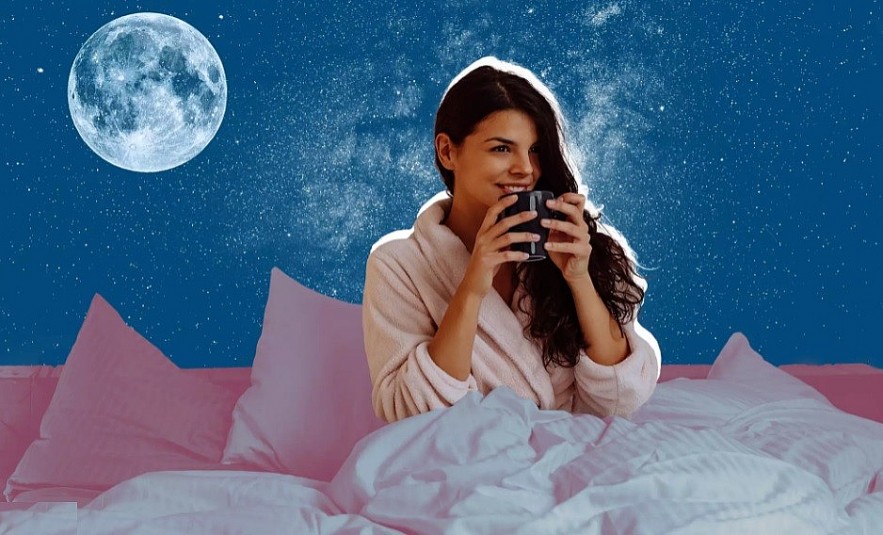 |
| GETTY IMAGES |
You know you need sleep—at least seven hours a night, on average. But when bedtime rolls around, it's often tough to tuck in. There are things you still to do, like chores, social media scrolling, time with your family. And even when you actually make it under the covers at an optimal hour, sometimes you just lie there, waiting for sleep to happen while your mind is racing.
Insomnia has lots of causes, and there's no one antidote that will allow you score the sleep you need. But the beverages you drink in the hours leading up to bedtime can set the stage so you feel more relaxed, making it that much easier to drift off to dreamland. Here are five expert-backed drinks to stick to if you want quality rest—and three to avoid because they'll keep you wired, according to the health.com.
A cup of herbal tea
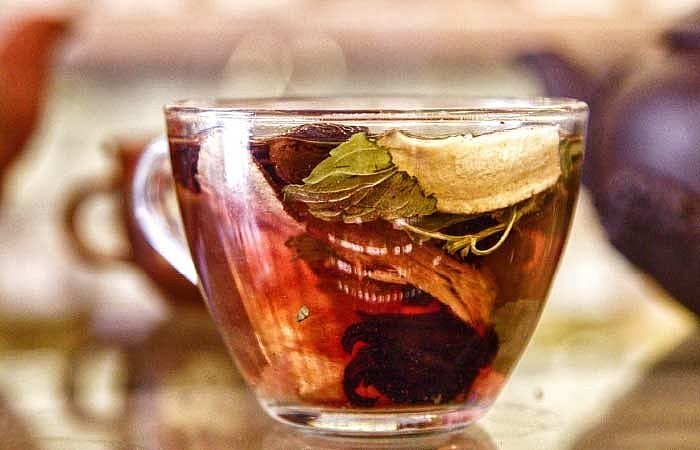 |
| Photo: asialifemagazine |
Herbal tea can be a soothing ritual to incorporate into your wind-down routine, says New York City-based integrative medicine dietitian Robin Foroutan, MS, RDN. She specifically recommends Tulsi tea (also known as Holy Basil tea), which can lower cortisol levels (aka, levels of the stress hormone cortisol) and help you attain more restorative sleep.
Like Tulsi tea, valerian, passionflower, and chamomile tea are also herbal teas, but they share a slightly different good-sleep mechanism. "There are elements in passionflower, chamomile, and valerian root that have been shown to be somewhat sedating," says Dr. Winter. (Valerian may be especially useful for anxiety, concluded a review in the Journal of Evidence-Based Integrative Medicine.)
More than that, the ritual of sipping tea has its own wind-down reward. "It's warm. You're smelling and tasting something interesting and floral. And it may be something you do at the same time every night," explains Winter. This ritual is not only relaxing, but it cues up your body and mind that it's almost time for bed.
Related: Dr. Thanh Herbal Tea: Tan Hiep Phat’s “Green source” to Ensure Employees' Health
A turmeric latte
You've probably heard that a glass of warm milk before bed can be calming. But many people don't find warm milk appetizing, and it might cause digestive discomfort if you're sensitive to the lactose in dairy products.
There is an alternative. "If your heart is set on a creamy nighttime beverage, then a turmeric latte might fit the bill," suggests Foroutan. Choose a plant-based milk as your base, such as almond, cashew, or oat milk, and warm it up with a teaspoon of the spice turmeric, which has anti-inflammatory powers. Stir well, sweeten with manuka honey, and top with a sprinkle of ground nutmeg, clove, and/or cinnamon. "The combination is anti-inflammatory, and manuka honey is great for gut and immune health," she explains.
Plain or fruit-infused water
There's a reason so many people keep a glass of H20 by their bedside at night: This drink is calorie-free, contains no added sugar, and keeps you feeling hydrated. To sleep well at night, try to consume more water earlier in the day: Drinking too much in the hours before bedtime can wake you in the middle of the night for a bathroom run. That in itself isn't so bad, unless you're a light sleeper and find it hard to fall back asleep once you've been awakened, W. Chris Winter, MD, author of The Sleep Solution: Why Your Sleep Is Broken and How To Fix It, tells Health.
Tart cherry juice
Some research suggests that sipping tart cherry juice can aid in sleep, especially for people who have insomnia. In one small study of adults over age 50, those who drank 8 ounces of tart cherry juice twice a day for two weeks scored an additional 84 minutes of sleep compared to study subjects who consumed a placebo drink, according to the American Journal of Therapeutics.
What's the secret? Certain chemicals in tart cherries boost the availability of tryptophan, an amino acid involved in the production of the neurotransmitter serotonin, which is linked to healthy sleep. Not a fan of tart drinks? Try combining it with water for a less tart, more satisfying sip.
A cup of ashwagandha
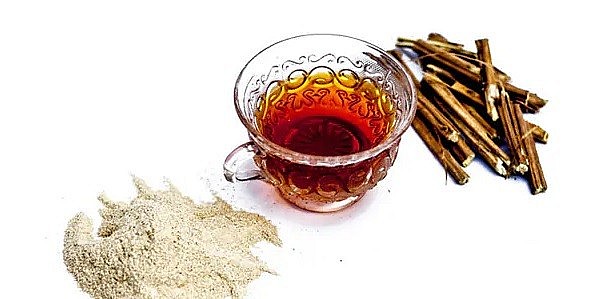 |
| ashwagandha tea promotes overall immunity, strength, energy and endurance. Photo: food.ndtv |
Ashwagandha is a medicinal herb, and it can be helpful for sleep, Alex Dimitriu, MD, who is double board-certified in psychiatry and sleep medicine and the founder of Menlo Park Psychiatry & Sleep Medicine in California, tells Health. It's considered an adaptogen, aka a plant that's thought to help the body adapt to stress.
Emerging research, including a small study on 60 adults in the journal Cureus, has found that taking ashwagandha helped reduce cortisol levels and improved sleep quality. It may be especially useful in reducing anxiety, says Dr. Dimitriu. You can find ashwagandha in ready-to-drink beverages, tea blends, and as a powder that you can stir into your drink of choice.
Skip these sips at night
Alcohol
Sure you might find that you nod off faster after some pinot. But the truth is, alcoholic drinks are sleep-stealers. While having a drink can decrease the time it takes for you to fall asleep and enhances non-REM sleep initially, it severely disrupts sleep during the second half of the night, notes a study review in the journal Alcohol.
Many people say that alcohol helps them relax, and if this is you, it brings up a bigger point, says Dr. Winter: What's keeping you from relaxing in general? "It's not great to lean on something extrinsic (like alcohol) to make something intrinsic (an ability to wind down and relax) work," he warns. Explore other ways to decrease stress before bed, such as meditation or progressive muscle relaxation.
Sugary drinks
Downing any sugary drink, including soda, fruit drinks, sports drinks, and (worse) sugary alcoholic drinks in the hours before bedtime can increase the odds of tossing and turning. "Sugary drinks are just too activating at night," Dr. Dimitriu says. Then there's the caffeine in many carbonated beverages. Even though the level is lower than a cup of coffee, it's still enough to mess with your body clock.
After dinner espresso
Speaking of caffeine, the ritual of having an after dinner coffee might sound relaxing, but it can seriously screw with your sleep. Caffeine is a stimulant that promotes alertness and activates energy. Hot chocolate, cola, and green tea have caffeine, but generally speaking, coffee has the most of it—so it's wise to cut off your consumption in the late afternoon and evening. Past research shows that drinking caffeine even six hours before bed can impact your ability to sleep well.
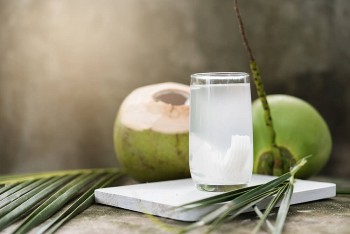 | Healthy Drinks to Make at Home A number of drinks have health benefits beyond just providing hydration. |
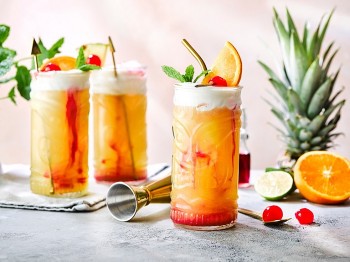 | The Best Cocktails You Can Make For A Spring Party Spring is the perfect time to have a party, and share a cold, fresh glass of cocktail with your family and friends. Here are some ... |
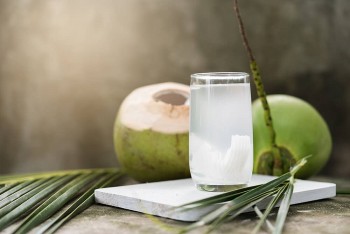 | Summer Coolers: Refreshing Drinks To Cool Down The Heat in Ho Chi Minh City Summer in Ho Chi Minh City is extremely hot, and a glass of coconut juice will boost your energy and make your body feel much ... |
Recommended
 Vietnamese Herbal Tea
Vietnamese Herbal Tea
Number One Affirms Energetic Spirit at "Enduring Passion" Award
 Vietnamese Herbal Tea
Vietnamese Herbal Tea
"Enduring Passion" Award Spreads Spirit of Perseverance and Dedication to Vietnam Youth
 Vietnamese Herbal Tea
Vietnamese Herbal Tea
“Enduring Passion” Award Review Process to be Completed by March 25
 Vietnamese Herbal Tea
Vietnamese Herbal Tea
"Ben Dam Me" Award: Encouragement from Number One
Popular article
 Vietnamese Herbal Tea
Vietnamese Herbal Tea
Drinking Zero Degree Green Tea, a Delivery Worker Wins VND 250 Million during Tet
 Vietnamese Herbal Tea
Vietnamese Herbal Tea
What to Expect at 30th Mai Vang Awards in 2024?
 Vietnamese Herbal Tea
Vietnamese Herbal Tea
Boost Your Productivity: Tips for a Productive End-of-Year
 Vietnamese Herbal Tea
Vietnamese Herbal Tea




